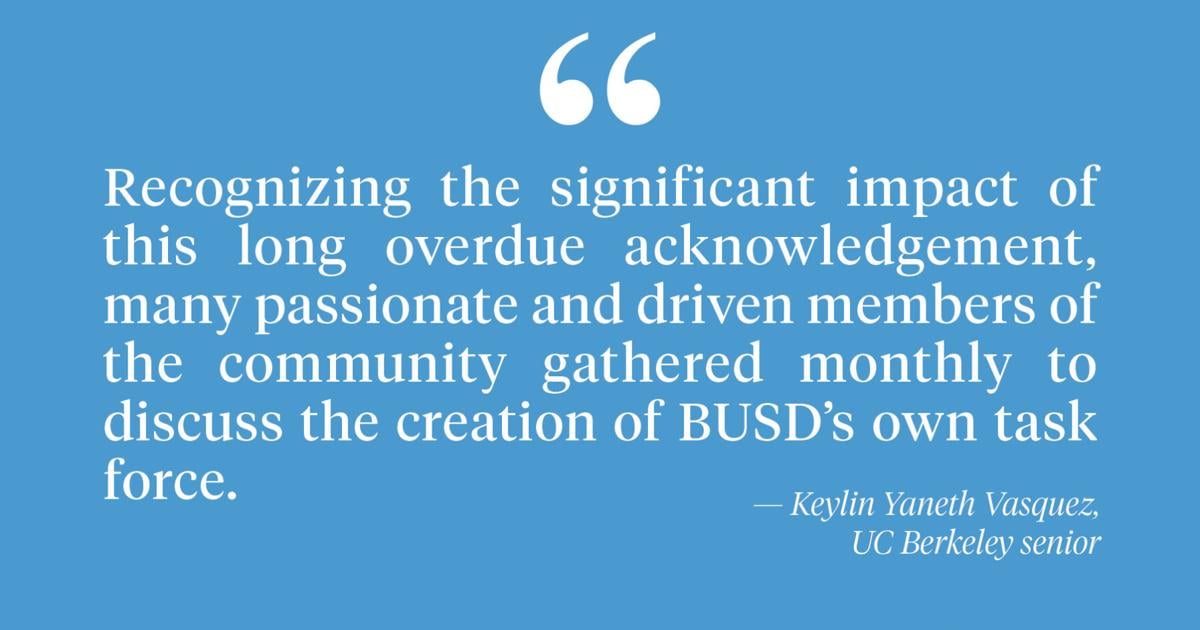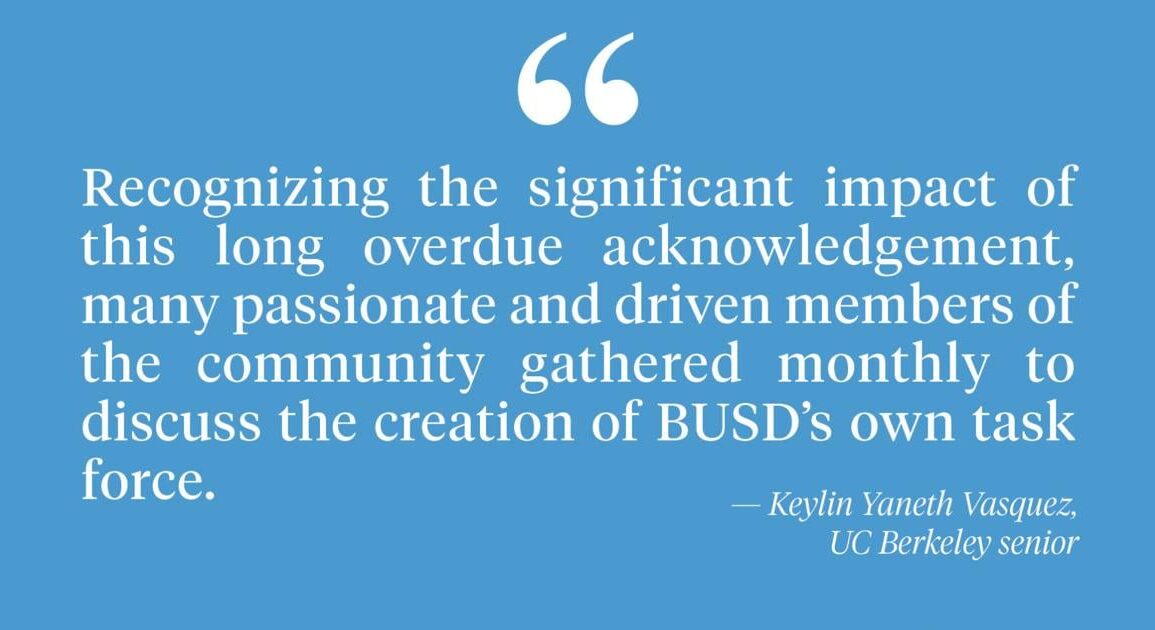
As a Latina student from a low-income minority background, I have learned the importance of education and knowledge. Education is not just a privilege but a responsibility, equipping us to drive systemic change. This is why, collectively as the community in Berkeley, we must educate ourselves on the imperative issues affecting society, the well-being of our marginalized groups and the future. In Berkeley, one such issue is the ongoing fight for Black reparations — a topic that challenges us to confront the legacies of inequality in our community. I hope that by the end of this piece you are able to reflect and understand why this gift is so pivotal for our growth.
This semester, I took an American Cultures course at UC Berkeley that explored how race, ethnicity and public policy intersect to shape inequalities. Black reparations, in particular, were a concept new to me. While rooted in history, they are not a distant issue — they are alive and unfolding in our very own community. In Berkeley, the impacts of systemic and racial disparities continue to permeate areas such as housing, education and resources that disproportionately affect Black Americans. The need for reparations is not just a theoretical discussion; it’s a matter of immediate, local importance challenging us to confront the ongoing legacy of inequality right here in our community.
The city of Berkeley is one of many municipalities setting forth movements to make the vision of Black reparations a reality. I had the immense privilege of being taught by a professor who served on the Berkeley Unified School District, or BUSD, Reparations Task Force. Learning about the importance of the task force through our professor piqued my interest in the topic, propelling me to explore its origins.
Reparations have recent precedents, such as Japanese detainment camps and Germany’s initiatives in providing reparations for Holocaust survivors that served as blueprints for contemporary efforts in the reparations movement. For Black reparations in particular, Palm Springs just recently reached an unprecedented $27 million settlement with Black and Latino families who were forced out of their homes in the 1960s. Black reparations have been at the core of many civil rights and racial equality movements. In the wake of the George Floyd protests in 2020, many individuals within Berkeley felt drawn to reignite conversations of the broader national and local discussions regarding historical injustices affecting the Black community. In the same year, BUSD formally acknowledged the presence of structures and symbols upholding a legacy of racism, oppression, exclusion and inequality in a resolution that was passed in June.
Recognizing the significant impact of this long overdue acknowledgement, many passionate and driven members of the community gathered monthly to discuss the creation of BUSD’s own task force. In March of 2023, it came to fruition, with the Reparations Task Force aiming to address the process of reparations for Black students in the district who had ancestral ties to enslaved people.
The task force comprised 15 unpaid but passionate volunteers, including BUSD community members, staff and BUSD students. Its purpose was: “In response to the legacy of chattel slavery in the U.S., BUSD seeks to explore the establishment of a program of reparations for BUSD students with ancestors who were enslaved in the U.S.” The task force was cross-racial, with a majority composed of Black descendants of American chattel slavery. With the exception of Don Tamaki serving on the California Reparations Task Force, this was the only cross-racial Black reparations task force in the nation. While Black people are the most directly impacted and must lead in shaping policy directions, cross-racial solidarity is pivotal in framing Black reparations as a broader societal issue rather than solely a “Black issue.” This collaborative solidarity fosters essential dialogue and education across communities, which is crucial to building political feasibility and coalition strength necessary for sustained movement building.
The BUSD Task Force was asked to provide recommendations to the district on three specific questions: What do reparations look like? How can BUSD fund reparations? How can and should BUSD implement such a program? They operated monthly meetings and often discussed recommendations with professionals, who were also unpaid. In June of 2024, they presented their final recommendations and report to BUSD. Now, it is in the hands of the district to utilize the report as it decides to move forward. However, as engaged community members, it is also in our hands to use the power of our vote to push for tangible change, such as ballot measures in the upcoming election to fund Black reparations.
The Black reparations movement, both in Berkeley and across the nation, is shaped by the inherent limitations of community-based advocacy. There is slow but monumental change occurring at the local level in many cities around the U.S. But fundamentally, these smaller local and state-level initiatives require the support of federal funding resources to attain large-scale collective change. This is where the role of students and the wider community comes into play. Berkeley, as a city, is composed of a large, diverse and educated population, serving as the home to numerous historical activism movements.
As we witness the strides being made in Berkeley, it’s essential that we recognize the power of community collaboration in driving meaningful change. Cross-coalition and intersectional solidarity between different groups will ensure that the reparations movement is not just a local effort but a collective force for broader societal change. By contributing to the work of a newly formed coalition to pass a ballot measure, we can be active participants in shaping a progressive and healing future.
We all have a role to play in this movement. The work of the BUSD Task Force is a crucial first step, but real progress depends on collective action. Engage by reading the task force’s report, advocating for funding measures and supporting community coalitions. For those in a position to contribute further, the coalition welcomes donations to help expand access to resources that will advance their mission. By becoming aware of initiatives affecting those around us, we are not just supporting a cause; we are creating a legacy of justice and equity. Now is the time to turn awareness into action, collectively inching towards making history.


